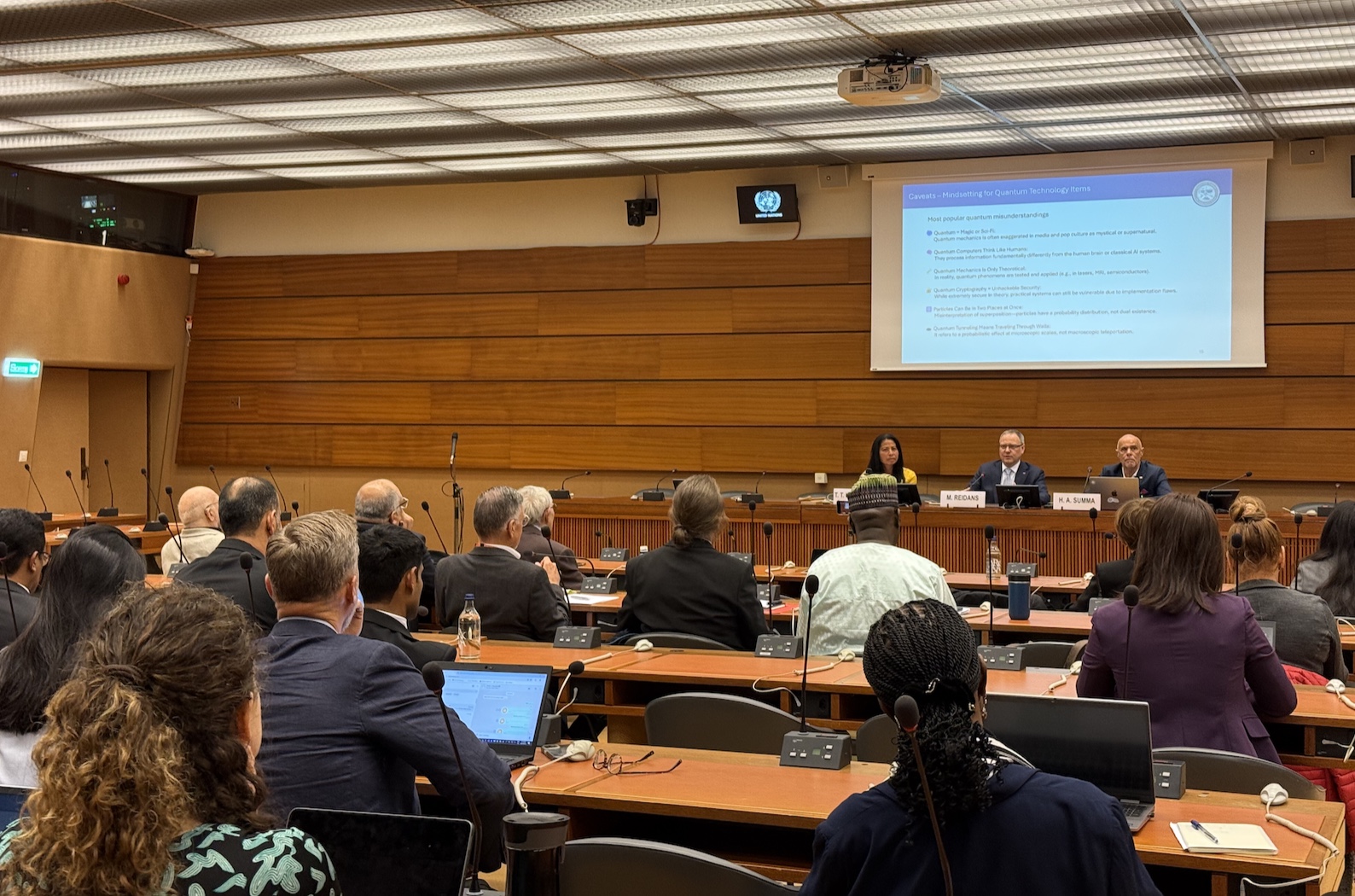Thought Leadership

Quantum Leap Forward: The Promise and Perils of a New Technological Era
In a packed conference room at the UN in Geneva, excitement crackled like static as experts unveiled the future of quantum technology – a field poised to redefine life as we know it. Declared the "Year of Quantum" by the United Nations for 2025, this technology, rooted in the strange and wondrous principles of quantum mechanics, is no longer a distant dream but a transformative force already taking shape. From climate research to medical breakthroughs, quantum tech promises a brighter future, yet its shadow looms large with risks that demand urgent attention.
The Diplomatic Council, a global think tank with UN ECOSOC status, hosted the event to spotlight its Quantum Leap Initiative, aimed at harnessing quantum advancements for humanity’s benefit, particularly for the less privileged. “Quantum technology will touch every corner of our lives,” said the event’s chair, introducing a vision where climate models predict with unprecedented precision, medical diagnostics leap forward, and artificial intelligence accelerates beyond imagination. The initiative’s focus spans quantum computing, sensing, communication, and even “quantum as a service” through cloud platforms, democratizing access to this cutting-edge power.
Harald Summa and Matthias Reidans
Leading the charge were two heavyweights: Harald Summa, a German internet pioneer who founded the eco Association, Europe’s largest internet industry group, and Matthias Reidans of Rosenberger, a firm exploring quantum’s potential in data transformation. They painted a vivid timeline, celebrating a century since quantum mechanics’ birth in 1925, when pioneers like Einstein, Planck, and Schrödinger laid its foundations. The “second quantum revolution” of the 1970s and 80s brought experimental proof of entanglement—particles linked across vast distances — a discovery crowned with a 2022 Nobel Prize. Now, a “third quantum revolution” glimmers on the horizon, with theories suggesting even black holes might be entangled, hinting at cosmic applications we can’t yet fathom.
The numbers are staggering. Governments worldwide are pouring billions into quantum research, with startups mushrooming to meet demand for hardware, software, and sensing tech. A McKinsey report projects a market rivaling AI’s, with universities from Maryland to Munich spinning off companies to build quantum computers and sensors. These machines, powered by qubits that exist in multiple states simultaneously, promise to solve problems—optimizing logistics, designing new drugs, simulating molecules—that today’s computers can’t touch. Google’s AI Quantum division exemplifies the fusion of quantum and AI, potentially slashing the time to train massive language models from weeks to seconds.
But the quantum coin has a darker side. These same computers threaten to crack encryption systems safeguarding global finance, critical infrastructure, and nuclear arsenals. “It’s a double-edged sword,” Summa warned, explaining how quantum communication could secure lines against any eavesdropper — a first in history — yet quantum computers could render current cybersecurity obsolete. Tests in cities like New York and Seoul already show quantum-secure networks in action, but scaling them globally remains a daunting challenge. Repeaters, needed every 30-70 kilometers to maintain quantum signals, are bulky and costly, though engineers predict compact versions within a decade.
The ethical stakes are high
The ethical stakes are even higher. Quantum tech could widen divides, with wealthier nations and corporations dominating access. Developing countries, though not entirely left behind—African universities are building quantum hubs — face a steep climb to catch up. Ambassador Gambhir of Geneva raised a pointed concern: will quantum exacerbate global inequities, especially as AI and digital gaps already strain poorer nations? The Diplomatic Council insists benefits like better fertilizers and secure communications can uplift all, but affordability remains a hurdle. While cloud-based quantum computing costs around €2,000 per hour — peanuts for research labs — it’s still out of reach for many.
Then there’s the specter of quantum warfare. Just as the internet grew from military roots, quantum tech is already eyed for battlefields, with research underway to make portable, resilient quantum systems. The Ukraine war showed how fast tech can reshape conflict; quantum could amplify that chaos exponentially. “We can’t ignore the geopolitical risks,” Reidens admitted, urging ethical roadmaps and global cooperation to prevent misuse.
The audience buzzed with questions. Would quantum create a new scientific elite? Could its hardware pose health risks, like LEDs damaging eyes? And when will it truly arrive? Summa countered skepticism with optimism: quantum algorithms are already optimizing logistics and drug discovery, even if fully reliable quantum PCs are 15-20 years off. Nvidias’s Jensen Huang sparked a stir by suggesting a longer wait, but breakthroughs in error correction and cloud access are accelerating progress.
As the session closed, a call to action rang clear: prepare now for the “quantum crisis” of encryption threats, monitor the unfolding third revolution, and steer this power toward good. Max Planck’s quip — “you can’t understand quantum mechanics, but you get used to it” — hung in the air, a reminder that humanity has tamed strange science before. With governance, transparency, and education, quantum tech could secure nuclear controls, optimize cities, and save lives. But left unchecked, it risks disruption on a scale we can’t yet predict. The quantum leap is here — where it lands depends on us.
